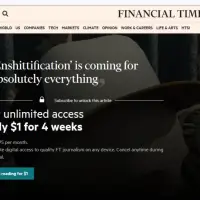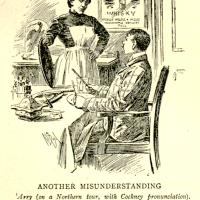 On this morning that transforms all mornings, I thought I would share from one of the masters. My copy of John Milton’s Paradise Lost includes a number of other poems. One of these is “On the Morning of Christ’s Nativity.” There are two parts, a 4 stanza “proem” followed by a 27 stanza hymn. The hymn is quite lovely, beginning:
On this morning that transforms all mornings, I thought I would share from one of the masters. My copy of John Milton’s Paradise Lost includes a number of other poems. One of these is “On the Morning of Christ’s Nativity.” There are two parts, a 4 stanza “proem” followed by a 27 stanza hymn. The hymn is quite lovely, beginning:
I
It was the Winter wilde,
While the Heav’n-born-childe,
All meanly wrapt in the rude manger lies;
Nature in aw to him
Had doff’t her gawdy trim,
With her great Master so to sympathize:
It was no season then for her
To wanton with the Sun her lusty Paramour.
The words caught me, and I thought they would make a perfect meditation for this happy Christmas morn. I leave the proem with you, one of the “thousand echoes” that “still prolongs each heavenly close.” Best wishes this Christmas, dear readers, all ye who gather round eternal feast, secret altars, and hollow’d fires.
I.
This is the Month, and this the happy morn
Wherein the Son of Heav’ns eternal King,
Of wedded Maid, and Virgin Mother born,
Our great redemption from above did bring;
For so the holy sages once did sing,
That he our deadly forfeit should release,
And with his Father work us a perpetual peace.
II
That glorious Form, that Light unsufferable,
And that far-beaming blaze of Majesty,
Wherwith he wont at Heav’ns high Councel-Table,
To sit the midst of Trinal Unity,
He laid aside; and here with us to be,
Forsook the Courts of everlasting Day,
And chose with us a darksom House of mortal Clay.
III
Say Heav’nly Muse, shall not thy sacred vein [
Afford a present to the Infant God?
Hast thou no vers, no hymn, or solemn strein,
To welcom him to this his new abode,
Now while the Heav’n by the Suns team untrod,
Hath took no print of the approching light,
And all the spangled host keep watch in squadrons bright?
IV
See how from far upon the Eastern rode
The Star-led Wisards haste with odours sweet:
O run, prevent them with thy humble ode,
And lay it lowly at his blessed feet;
Have thou the honour first, thy Lord to greet,
And joyn thy voice unto the Angel Quire,
From out his secret Altar toucht with hallow’d fire.
You can read the entire poem here. Merry Christmas!






















Merry Christmas to you and yours 😎
Reblogged this on Talmidimblogging.
(Brenton, this brought back memories from more than two decades ago, when I was Jessica Shaver. This was how I opened a chapter on “Poetry: Distillation of Life” for the book The Complete Guide to Christian Writing and Speaking:)
Just before Christmas, I was in a graduate poetry seminar in a (California) state university when a soprano in a nearby classroom broke into a soaring aria from Handel’s Messiah: “For unto us a child is born, unto us a son is given…and His name shall be called Wonderful Counselor, Almighty God, the Everlasting Father, the Prince of Peace.”
Lying before me was John MIlton’s poem, “On the Morning of Christ’s Nativity,” which begins,
“This is the Month, and this the happy morn,
Wherein the Son of Heav’n’s eternal King,
Of wedded Maid, and Virgin Mother born,
Our great redemption from above did bring…”
Wow! Try as the secularists might to keep Jesus Christ out of this university, He was right there in the classroom with us, permeating the very words we were reading, perfuming the air we were breathing!
How do Milton and Handel manage to penetrate to the very heart of a godless campus with the gospel, when sermons, tracts, and personal witness usually meet with hostility, ridicule, or indifference? By mastering their craft.
If your craft is poetry, master it! Read great poetry. Take classes in literature, grammar, creative writing. Write, Join a critique group. Experiment with “technical tricks” like those below until you “revel in them” as Robert Frost did…
Pingback: C.S. Lewis’ Teenage Bookshelf, and Other Lessons on Reading | A Pilgrim in Narnia
Pingback: “C.S. Lewis’ Arthuriad: Survey and Speculation” by Brenton Dickieson | A Pilgrim in Narnia
Pingback: A Weekend of Reading to Change Your Literary Life | A Pilgrim in Narnia
Pingback: Full: My Experience of the L.M. Montgomery Institute Conference (L.M. Montgomery Series) #LMMI2018 | A Pilgrim in Narnia
Pingback: What Counts as An Old Book? A Conversation with C.S. Lewis and Goodreads | A Pilgrim in Narnia
Pingback: What Counts as an Old Book? A Response by Dale Nelson | A Pilgrim in Narnia
Pingback: An Obituary of C.S. Lewis’ Life as an Oxford Don, by John Wain (The 65th Anniversary of Lewis’ Death) | A Pilgrim in Narnia
Pingback: Can Cod-liver Oil Cure Us of Poetry? A Thought on the Uselessness of Poets in Today’s Economy from L.M. Montgomery’s Rainbow Valley | A Pilgrim in Narnia
Pingback: An Essential Reading List from C.S. Lewis: An Experiment on An Experiment in Criticism (Throwback Thursday) | A Pilgrim in Narnia
Pingback: An Obituary of C.S. Lewis’ Life as an Oxford Don, by John Wain (The 57th Anniversary of Lewis’ Death) | A Pilgrim in Narnia
Pingback: 2020: A Year of Reading: The Nerd Bit, with Charts | A Pilgrim in Narnia
Pingback: 2020: A Year of Reading: The Nerd Bit, with Charts | A Pilgrim in Narnia
Pingback: Marsha Daigle-Williamson’s Reflecting the Eternal and Dante in the Work of C.S. Lewis, with Thoughts about Intertextuality (Good C.S. Lewis Studies Books That Did Not Win the Mythopoeic Award Series Insert) | A Pilgrim in Narnia
Pingback: “A Sense of the Season”: C.S. Lewis’ Birthday Pivot and the Cambridge Inaugural Address (Updated) | A Pilgrim in Narnia
Pingback: The Pilgrim’s Progress and the Nursery Bookshelf: A Book’s Journey (Throwback Thursday) | A Pilgrim in Narnia
Pingback: Bunyan and Others and Me: Vicarious Bookshelf Friendship and a Jazz Hands Theory of Reading | A Pilgrim in Narnia
Pingback: John Bunyan’s Apology for his Book with a Note from C.S. Lewis on Writing as Holistic Discovery–and How Narnia Achieved the Bigness You See | A Pilgrim in Narnia
Pingback: “We Became to America what the Huns Had Been to Us”: C.S. Lewis and the European Colonization of America | A Pilgrim in Narnia
Pingback: “A Sense of the Season”: C.S. Lewis’ Birthday Pivot and the Cambridge Inaugural Address (Updated 2022) | A Pilgrim in Narnia
Pingback: An Obituary of C.S. Lewis’ Life as an Oxford Don, by John Wain (on the 60th Anniversary of Lewis’ Death) | A Pilgrim in Narnia